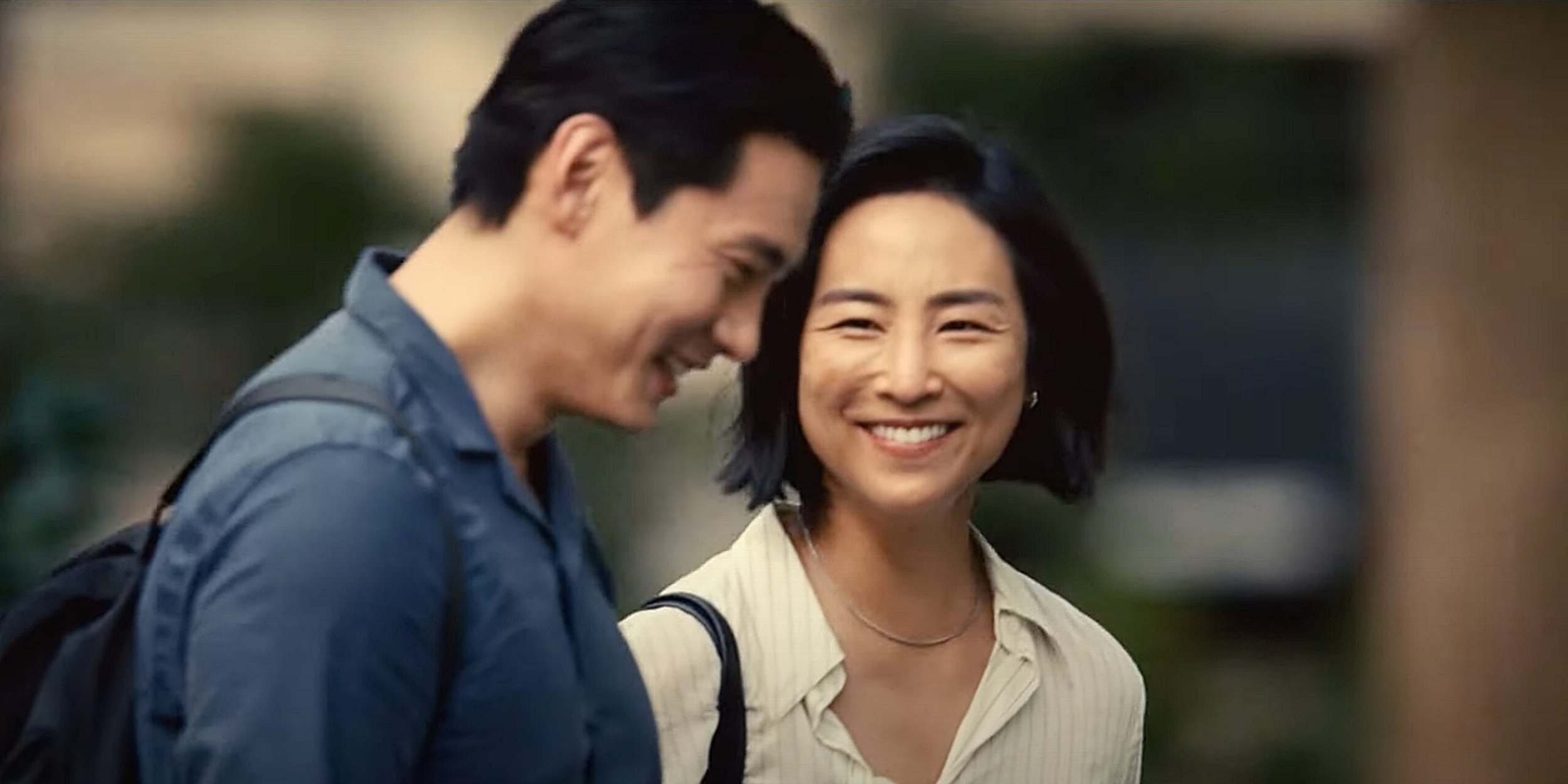‘Past Lives’ Review: Celine Song’s Directorial Debut is a Heartbreaking Look at a ‘What If’
Celine Song’s Past Lives is anchored by incredible performances from Greta Lee and Teo Yoo, who bring massive amounts of humanity to their respective characters.
“What if I did this?” “What if I said that?” “Oh, man, I should’ve done this to—” are things we all collectively say to ourselves when we screw up, regret not doing something in the present moment, or, most importantly, miss the opportunity of a lifetime. In Celine Song’s Past Lives, Nora (Greta Lee) reunites with her childhood crush, Hae Sung (Teo Yoo), after the latter finds her via Facebook. Nora (her Korean name is Na Young) moved from Seoul to Toronto as a child and left all of her past memories, including her loving relationship with Hae Sung, in South Korea.
She has moved to New York and is working as a writer before she rekindles with Hae Sung over Skype. The two instantly reconnect and start catching up on life; you can feel how they still have feelings for one another. Hae Sung discusses visiting her in New York while Nora contemplates returning to Seoul. However, Nora inexplicably decides to move on from her life in Seoul and cuts all communication with Hae Sung. Twelve years pass, and Hae Sung decides to visit Nora in New York. She’s now married to Arthur (John Magaro), a successful writer who becomes discombobulated by Hae Sung’s arrival, thinking he will win her over again, as it is definitely a clichéd story in many films and television series.
But this doesn’t happen. Hae Sung arrives in New York, and the two catch up. They reminisce about the past, talk about their current occupations, and then something happens. The two realize they could’ve been together, loved each other since they were children, and slowly discuss their “What ifs…” What if Nora went back to South Korea? Or what if Hae Sung went to New York twelve years ago? Would their life be different than it is now? Frequently, editor Keith Fraese will briefly cut back to moments of Na Young and Hae Sung playing in a park or looking at each other as children as they remember what they had and how their “What ifs” are still plaguing their minds.
There is a lot Song does without having the characters say anything. They look at each other and convey everything they need to tell you about how they feel for one another. The way they see themselves when they reunite is person is both a beautiful and heart-wrenching sequence. Their love is still there, but their lives couldn’t be more different. You can tell from Lee and Yoo’s facial expressions that they still harbor strong feelings for one another but are also keeping it close in their mind so that they don’t explicitly say they love each other. They know they’ve made mistakes, and their decisions led them to this moment, but something else could’ve happened that would’ve put the characters on a different path.
Some will say the movie’s structure is too conventional, and they may be right. It doesn’t take many storytelling risks, but Song’s direction remains unparalleled. The way she can make their actors convey so many feelings without them uttering a single word is one of the most difficult undertakings any filmmaker (and actor) can do convincingly. But Song does it easily and knows how talented Greta Lee and Teo Yoo are. They give two of the very best performances of the year, effortless in their charm but also emotionally charged in a way that feels one-of-a-kind. The film’s latter half is particularly devastating. What starts off as a fun reunion morphs into an emotionally complex and introspective journey of longing for what could’ve been instead of what is.
The cinematography is also excellent, with Shabier Kirchner giving much-needed visual depth to the characters’ relationship and adding a clear visual language through its 35mm photography. The way the frame is blocked on occasions to hide Magaro’s Arthur, who Nora and Hae Sung completely ignore, whilst they speak Korean at a bar, is one of the few examples of how Song and Kirchner craft the film’s visual storytelling and put its emphasis on how the characters look (or not) at each other instead of what they say.
It’s one of the most emotionally powerful movies of the year. And while its structure could be perceived as conventional, Past Lives also contains two Awards-worthy performances from Lee and Yoo. It’s the first movie of the year where an “Oscar” conversation should be happening right now. I know it’s early, and I know there will be some pushback to this statement, but I cannot fathom another movie that will break me exactly the way Past Lives does and never think to piece any of it back. That’s what makes it special, and that’s why you need to see this right now.



